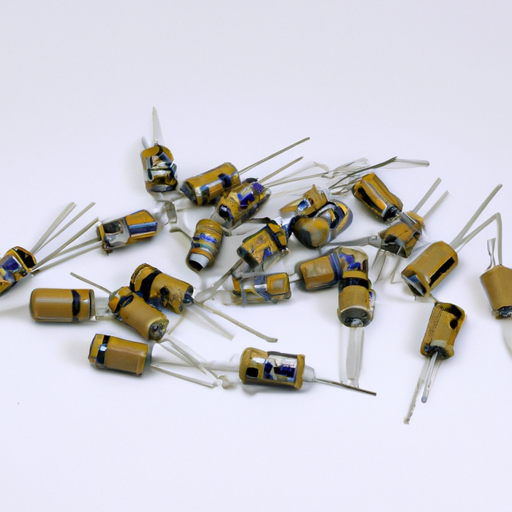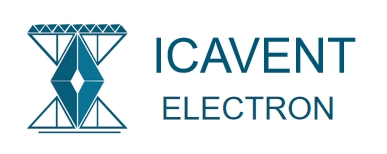What is the Purchase Price of the Latest Capacitor?

I. Introduction
Capacitors are fundamental components in the world of electronics, playing a crucial role in the functionality of various devices. They store and release electrical energy, making them essential for applications ranging from consumer electronics to industrial machinery. As technology advances, the demand for capacitors continues to grow, leading to a dynamic market with varying prices. This article aims to explore the purchase price of the latest capacitors, providing insights into the factors that influence their costs and the current market trends.
II. Understanding Capacitors
A. Basic Principles of Capacitors
Capacitors are passive electronic components that store electrical energy in an electric field. They consist of two conductive plates separated by an insulating material known as a dielectric. When voltage is applied, an electric field forms between the plates, allowing the capacitor to store energy. The key specifications of capacitors include:
1. **Capacitance**: Measured in farads (F), capacitance indicates the amount of charge a capacitor can store.
2. **Voltage Rating**: This specifies the maximum voltage a capacitor can handle before breaking down.
3. **Equivalent Series Resistance (ESR)**: This is a measure of the resistance a capacitor presents to alternating current (AC), affecting its efficiency.
B. Common Applications of Capacitors
Capacitors are ubiquitous in electronic devices, serving various functions:
1. **Consumer Electronics**: In smartphones, televisions, and computers, capacitors help filter signals, stabilize power supplies, and store energy for quick release.
2. **Industrial Applications**: Capacitors are used in motors, power supplies, and control systems to improve efficiency and performance.
3. **Renewable Energy Systems**: In solar and wind energy systems, capacitors store energy and help manage power flow.
III. Types of Capacitors
Capacitors come in various types, each with unique characteristics and price ranges:
A. Electrolytic Capacitors
These capacitors are polarized and typically used for high-capacitance applications. They are cost-effective but have a limited lifespan and can fail if subjected to reverse voltage.
B. Ceramic Capacitors
Ceramic capacitors are non-polarized and widely used in high-frequency applications. They are known for their stability and reliability, making them a popular choice in consumer electronics.
C. Film Capacitors
These capacitors use a thin plastic film as the dielectric. They are known for their low ESR and high voltage ratings, making them suitable for audio and power applications.
D. Tantalum Capacitors
Tantalum capacitors are known for their high capacitance in a small package. They are often used in compact electronic devices but can be more expensive than other types.
E. Supercapacitors
Supercapacitors, or ultracapacitors, can store large amounts of energy and are used in applications requiring rapid charge and discharge cycles, such as in electric vehicles.
F. Comparison of Different Types and Their Price Ranges
The price of capacitors varies significantly based on type and specifications. For example, electrolytic capacitors may cost as little as $0.10 each, while high-end tantalum or supercapacitors can range from $1 to $10 or more, depending on their capacitance and voltage ratings.
IV. Factors Influencing Capacitor Prices
Several factors influence the pricing of capacitors in the market:
A. Material Costs
1. **Raw Materials**: The cost of materials used in manufacturing capacitors, such as aluminum, tantalum, and ceramic, can fluctuate based on market conditions.
2. **Supply Chain Issues**: Disruptions in the supply chain, such as those caused by geopolitical tensions or natural disasters, can lead to increased prices.
B. Technology Advancements
1. **Innovations in Capacitor Design**: New manufacturing techniques and materials can improve performance but may also increase production costs.
2. **Performance Improvements**: Capacitors with higher capacitance, lower ESR, or better thermal stability often come at a premium.
C. Market Demand
1. **Trends in Consumer Electronics**: The growing demand for electronic devices drives the need for capacitors, influencing their prices.
2. **Industrial Demand Fluctuations**: Changes in industrial production can affect the demand for specific types of capacitors, impacting pricing.
D. Brand Reputation and Manufacturer
1. **Established Brands vs. New Entrants**: Well-known manufacturers may charge higher prices due to their reputation for quality and reliability.
2. **Warranty and Support Considerations**: Capacitors with longer warranties or better customer support may come at a higher price.
V. Current Market Trends
A. Overview of the Latest Capacitor Technologies
Recent advancements in capacitor technology include the development of high-capacity supercapacitors and the use of new dielectric materials that enhance performance. These innovations are driving the market towards more efficient and compact solutions.
B. Price Trends Over the Past Few Years
Over the past few years, capacitor prices have experienced fluctuations due to varying demand and supply chain challenges. While some types have seen price increases, others have remained stable or even decreased as production techniques improve.
C. Predictions for Future Pricing and Market Developments
As technology continues to evolve, the capacitor market is expected to grow. Innovations in electric vehicles and renewable energy systems will likely drive demand, potentially leading to higher prices for specialized capacitors.
VI. Price Ranges for Latest Capacitors
A. Entry-Level Capacitors
Entry-level capacitors, such as basic electrolytic types, can be found for as low as $0.10 to $0.50 each, making them accessible for hobbyists and small-scale projects.
B. Mid-Range Capacitors
Mid-range options, including ceramic and film capacitors, typically range from $0.50 to $5.00, depending on specifications and brand.
C. High-End Capacitors
High-end capacitors, such as tantalum and specialized film types, can range from $5.00 to $20.00 or more, reflecting their advanced performance characteristics.
D. Specialty Capacitors
Specialty capacitors, like supercapacitors and high-voltage capacitors, can vary widely in price, often starting at $10.00 and going up to several hundred dollars for high-capacity models.
VII. Where to Purchase Capacitors
A. Online Retailers
Websites like Digi-Key, Mouser, and Amazon offer a wide selection of capacitors, often with competitive pricing and detailed specifications.
B. Local Electronics Stores
Local electronics stores may carry a limited selection of capacitors, making them a convenient option for quick purchases.
C. Wholesale Suppliers
Wholesale suppliers can provide bulk pricing for businesses or individuals looking to purchase large quantities of capacitors.
D. Manufacturer Direct Sales
Purchasing directly from manufacturers can sometimes yield better prices, especially for specialized or high-volume orders.
VIII. Conclusion
Understanding the purchase price of capacitors is essential for consumers and businesses alike. With various types, specifications, and market factors influencing prices, it is crucial to stay informed about current trends and future developments. As technology continues to advance, the capacitor market will likely evolve, presenting new opportunities and challenges for buyers. By being aware of the factors that influence pricing and where to purchase capacitors, individuals and businesses can make informed decisions that align with their needs.
IX. References
A comprehensive list of sources for further reading, including industry reports and market analysis documents, can provide additional insights into the capacitor market and its pricing dynamics.
What is the Purchase Price of the Latest Capacitor?

I. Introduction
Capacitors are fundamental components in the world of electronics, playing a crucial role in the functionality of various devices. They store and release electrical energy, making them essential for applications ranging from consumer electronics to industrial machinery. As technology advances, the demand for capacitors continues to grow, leading to a dynamic market with varying prices. This article aims to explore the purchase price of the latest capacitors, providing insights into the factors that influence their costs and the current market trends.
II. Understanding Capacitors
A. Basic Principles of Capacitors
Capacitors are passive electronic components that store electrical energy in an electric field. They consist of two conductive plates separated by an insulating material known as a dielectric. When voltage is applied, an electric field forms between the plates, allowing the capacitor to store energy. The key specifications of capacitors include:
1. **Capacitance**: Measured in farads (F), capacitance indicates the amount of charge a capacitor can store.
2. **Voltage Rating**: This specifies the maximum voltage a capacitor can handle before breaking down.
3. **Equivalent Series Resistance (ESR)**: This is a measure of the resistance a capacitor presents to alternating current (AC), affecting its efficiency.
B. Common Applications of Capacitors
Capacitors are ubiquitous in electronic devices, serving various functions:
1. **Consumer Electronics**: In smartphones, televisions, and computers, capacitors help filter signals, stabilize power supplies, and store energy for quick release.
2. **Industrial Applications**: Capacitors are used in motors, power supplies, and control systems to improve efficiency and performance.
3. **Renewable Energy Systems**: In solar and wind energy systems, capacitors store energy and help manage power flow.
III. Types of Capacitors
Capacitors come in various types, each with unique characteristics and price ranges:
A. Electrolytic Capacitors
These capacitors are polarized and typically used for high-capacitance applications. They are cost-effective but have a limited lifespan and can fail if subjected to reverse voltage.
B. Ceramic Capacitors
Ceramic capacitors are non-polarized and widely used in high-frequency applications. They are known for their stability and reliability, making them a popular choice in consumer electronics.
C. Film Capacitors
These capacitors use a thin plastic film as the dielectric. They are known for their low ESR and high voltage ratings, making them suitable for audio and power applications.
D. Tantalum Capacitors
Tantalum capacitors are known for their high capacitance in a small package. They are often used in compact electronic devices but can be more expensive than other types.
E. Supercapacitors
Supercapacitors, or ultracapacitors, can store large amounts of energy and are used in applications requiring rapid charge and discharge cycles, such as in electric vehicles.
F. Comparison of Different Types and Their Price Ranges
The price of capacitors varies significantly based on type and specifications. For example, electrolytic capacitors may cost as little as $0.10 each, while high-end tantalum or supercapacitors can range from $1 to $10 or more, depending on their capacitance and voltage ratings.
IV. Factors Influencing Capacitor Prices
Several factors influence the pricing of capacitors in the market:
A. Material Costs
1. **Raw Materials**: The cost of materials used in manufacturing capacitors, such as aluminum, tantalum, and ceramic, can fluctuate based on market conditions.
2. **Supply Chain Issues**: Disruptions in the supply chain, such as those caused by geopolitical tensions or natural disasters, can lead to increased prices.
B. Technology Advancements
1. **Innovations in Capacitor Design**: New manufacturing techniques and materials can improve performance but may also increase production costs.
2. **Performance Improvements**: Capacitors with higher capacitance, lower ESR, or better thermal stability often come at a premium.
C. Market Demand
1. **Trends in Consumer Electronics**: The growing demand for electronic devices drives the need for capacitors, influencing their prices.
2. **Industrial Demand Fluctuations**: Changes in industrial production can affect the demand for specific types of capacitors, impacting pricing.
D. Brand Reputation and Manufacturer
1. **Established Brands vs. New Entrants**: Well-known manufacturers may charge higher prices due to their reputation for quality and reliability.
2. **Warranty and Support Considerations**: Capacitors with longer warranties or better customer support may come at a higher price.
V. Current Market Trends
A. Overview of the Latest Capacitor Technologies
Recent advancements in capacitor technology include the development of high-capacity supercapacitors and the use of new dielectric materials that enhance performance. These innovations are driving the market towards more efficient and compact solutions.
B. Price Trends Over the Past Few Years
Over the past few years, capacitor prices have experienced fluctuations due to varying demand and supply chain challenges. While some types have seen price increases, others have remained stable or even decreased as production techniques improve.
C. Predictions for Future Pricing and Market Developments
As technology continues to evolve, the capacitor market is expected to grow. Innovations in electric vehicles and renewable energy systems will likely drive demand, potentially leading to higher prices for specialized capacitors.
VI. Price Ranges for Latest Capacitors
A. Entry-Level Capacitors
Entry-level capacitors, such as basic electrolytic types, can be found for as low as $0.10 to $0.50 each, making them accessible for hobbyists and small-scale projects.
B. Mid-Range Capacitors
Mid-range options, including ceramic and film capacitors, typically range from $0.50 to $5.00, depending on specifications and brand.
C. High-End Capacitors
High-end capacitors, such as tantalum and specialized film types, can range from $5.00 to $20.00 or more, reflecting their advanced performance characteristics.
D. Specialty Capacitors
Specialty capacitors, like supercapacitors and high-voltage capacitors, can vary widely in price, often starting at $10.00 and going up to several hundred dollars for high-capacity models.
VII. Where to Purchase Capacitors
A. Online Retailers
Websites like Digi-Key, Mouser, and Amazon offer a wide selection of capacitors, often with competitive pricing and detailed specifications.
B. Local Electronics Stores
Local electronics stores may carry a limited selection of capacitors, making them a convenient option for quick purchases.
C. Wholesale Suppliers
Wholesale suppliers can provide bulk pricing for businesses or individuals looking to purchase large quantities of capacitors.
D. Manufacturer Direct Sales
Purchasing directly from manufacturers can sometimes yield better prices, especially for specialized or high-volume orders.
VIII. Conclusion
Understanding the purchase price of capacitors is essential for consumers and businesses alike. With various types, specifications, and market factors influencing prices, it is crucial to stay informed about current trends and future developments. As technology continues to advance, the capacitor market will likely evolve, presenting new opportunities and challenges for buyers. By being aware of the factors that influence pricing and where to purchase capacitors, individuals and businesses can make informed decisions that align with their needs.
IX. References
A comprehensive list of sources for further reading, including industry reports and market analysis documents, can provide additional insights into the capacitor market and its pricing dynamics.













